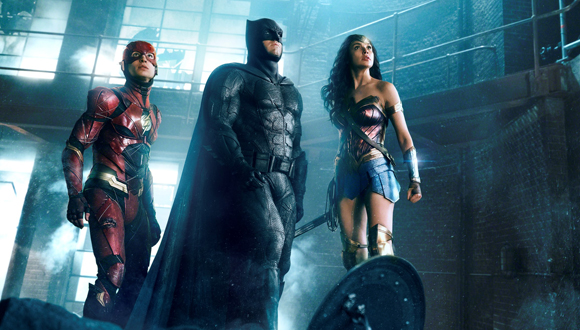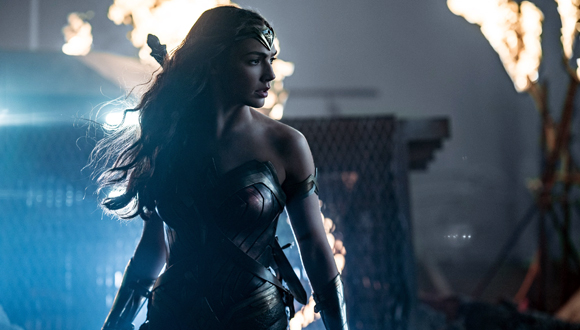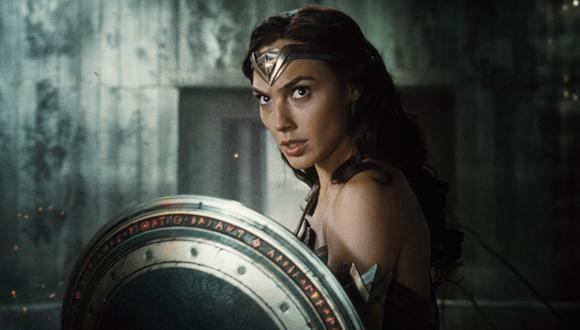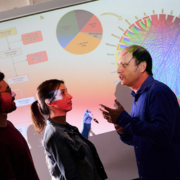The "Wonder" Effect
What stories have we historically told about female heroes? Is Wonder Woman just another movie or a game-changer for the industry? TAU scientists weigh in on the strongest woman on screen.
It’s hard to find anyone these days who hasn’t heard of Superman or Batman, from little kids who dress up like them for Halloween to the adults buying movie tickets to their latest Hollywood blockbusters. But what about the most famous female superhero? Since her 1970s TV show ended, Wonder Woman has never been more popular than she is today. Where do the stories she’s based on come from? And what does her success mean for the movie world?
Superheroes in Ancient Greece
The character of Wonder Woman was created in the 1930s by William Marsten and described as an Amazonian princess. Since her inception, Wonder Woman was as important to saving the world as her male colleagues, Batman and Superman, which made her one of the most powerful female characters in the world of comic books. However, according to Prof. Rachel Zelnik-Abramovitz from The Department for Classic Studies at the Lester and Sally Entin Faculty of Humanities, the original Greek myths Wonder Woman is based on are very far from the way the character is portrayed today.
“The Amazons were a mythical nation of warrior women,” Prof. Zelnick-Abramovitz explains. “In the Greek epics they appear as the enemies of Greek men and nations. The Amazons symbolized “the other”, the “non-Greek”, and are portrayed visually as the opposite of the Greeks. For example, in contrast to Greek women, they rode horses and fought like men, and had a nomadic lifestyle.”
In the latest Wonder Woman movie, the Amazons are portrayed as a species that was originally created by the Greek goddess Hera, and is made up entirely of women. "The connection to Hera is a modern invention,” Prof. Zelnick-Abramovitz says, "Although the Amazons were all women of course. There were actually several versions of how the Amazons interacted with men. According to one of them, they used men from a neighboring tribe once a year for procreation, and then killed the boys born from these encounters, keeping only the girls and raising them to be warriors. According to another version, however, the Amazons had husbands who stayed home and took care of the children."

To each generation an Amazon is born
According to Prof. Zelnick-Abramovitz the 21st century is not unique in being captivated by and re-imagining the Amazons to suit its own needs. "In ancient Rome the Amazons were portrayed as both fierce warriors and erotic figures. In the Middle Ages the attitude towards them was ambivalent, but they were considered an example of the Christian ideal of virginity. A bit later, the Amazons started appearing in stories about the New World, as told by Christopher Columbus, Amerigo Vespucci and Hernan Cortes. Even later, in the 19th century, early anthropologists considered the myths of the Amazons evidence of prehistoric matriarchal societies.”
So what’s new about the way our generation is interpreting the Amazons? “These days, the Amazons are considered prototypes of ancient superheroes, like with Wonder Woman. Which is a bit funny, since there’s a huge distance between our version of the peace-loving Wonder Woman who fights for “love” and the original wild Amazon who is the opposite of Greek culture.”
The original depictions of the Amazons in ancient Greece are pretty far from how we think of characters like Wonder Woman today, but what’s the deeper meaning of our modern interpretation? Although the character was originally created by a man, in her latest incarnation Wonder Woman has been strongly identified with women creating their own stories. According to Yaara Ozery of the Steve Tisch School of Film and Television, the movie “Wonder Woman” has had a profound impact on the film industry in general, and the women who are part of it in particular.
“Wonder Woman was the first superhero movie to be directed by a woman,” Yaara says. “Because of its enormous success, new doors in Hollywood are being opened for women to direct not just superhero movies, but high budget movies in general. It proved that there’s a hunger within the general public for movies about female heroes, and so we can expect there to be more of them on our screens soon.”

By women, for women
Aside from being a film scholar, Yaara is the organizer of the conference "Mirrors: Women's Film and Television” and she believes Israeli actress Gal Gadot has been part of why the myth of the superpowered Amazon has been such a game-changer. “Other superhero movies, like “Iron Man” or “Batman vs Superman” weren’t just about a male character, but were also directed by men and were intended for a male audience. “Wonder Woman” on the other hand, is part of ‘women’s cinema’ because it assumes the viewer is a woman, to quote film researcher Teresa de Lauretis. This movie was therefore an agent of real change, for women in the film industry and outside of it.”
In spite of this, Yaara is aware that not everyone thinks “Wonder Woman” carries a positive feminist impact. The movie has been criticized for portraying the first female superhero as significantly more undressed than her male counterparts, and choosing to show impractical but revealing armor for its Amazon warriors. “You could analyze Wonder Woman’s current portrayal all kinds of different ways,” Yaara says, “from a feminist perspective. But the way the whole conversation around female superhero movies has changed because of it is a more interesting analysis, to me.”
Yaara believes even some of the leading actress’ public statements have helped change the discourse in the industry. “Just recently, Gal Gadot has come out publicly saying she won’t make another Wonder Woman movie as long as producer Brett Ratner, who’s been accused of sexual harassment, is attached to the project. On the one hand it was her own personal decision, of course, but on the other it had enormous symbolic meaning: a movie about women’s empowerment can’t prop up someone accused of sexually harassing women.”
Although “Wonder Woman” isn’t particularly true to her Greek origins, it seems in our version of the Amazon princess she’s at least helping women tell their own stories and succeed in the entertainment industry. What form will she take next? How will we remember the Amazons a few decades from now? Or a few centuries? The Classic Studies Department of 2217 will have to let us know.






